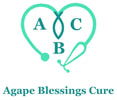Second Mission Trip 2018
STUDENT TEAMS:
TEAM JULIA TAO = JULIA TAO, EMMALY NGUYEN, DEAN ALAMY, JACQUELINE DUONG, KENNETH YANG
TEAM MICHAEL WONG = MICHAEL WONG, ADAM ALAMY, ETHAN NGUYEN, MATTHEW ONGKEKO, MATT CHENG
TEAM NATE CHENG = NATE CHENG, RYAN TAO, ALEX DUONG, MICHAEL LEE, CHRISTIAN HWANG
TEAM CAS HOM = CAS HOM, CAMERON KIM, GABRIELA CARROLL, XITLALI CARROLL
TEAM JULIA TAO = JULIA TAO, EMMALY NGUYEN, DEAN ALAMY, JACQUELINE DUONG, KENNETH YANG
TEAM MICHAEL WONG = MICHAEL WONG, ADAM ALAMY, ETHAN NGUYEN, MATTHEW ONGKEKO, MATT CHENG
TEAM NATE CHENG = NATE CHENG, RYAN TAO, ALEX DUONG, MICHAEL LEE, CHRISTIAN HWANG
TEAM CAS HOM = CAS HOM, CAMERON KIM, GABRIELA CARROLL, XITLALI CARROLL

 RSS Feed
RSS Feed